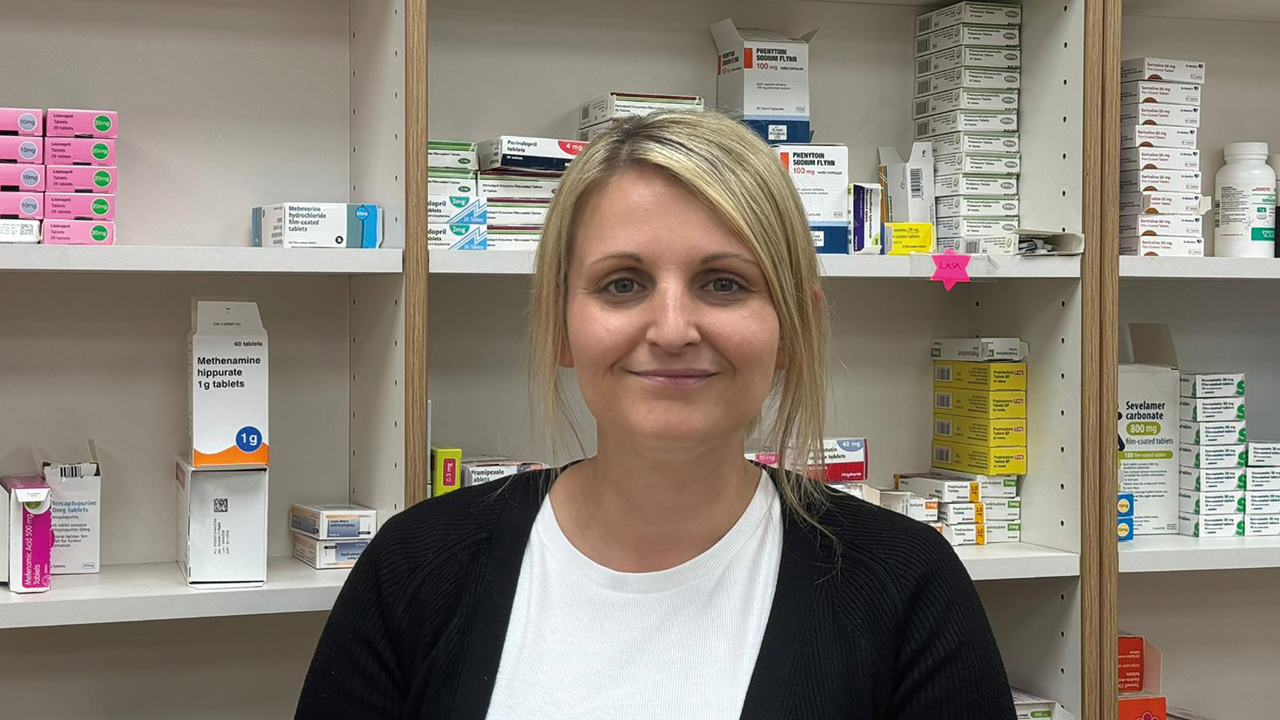In Practice
Follow this topic
Bookmark
Record learning outcomes
As she reaches her five year mark in pharmacy, Roslyn Williams is now a fully-fledged pharmacy technician with a passion for services and anything that involves helping others. “It started as a part-time role working around my children, thinking it would be a stop-gap until I found something else,” she says. “And I’ve stayed! It turns out I’m really passionate about community pharmacy.” From humble beginnings with no prior experience, to quickly completing her NVQ2 and NVQ3 courses, Roslyn has swiftly progressed in her role and continues to look for ways to improve the lives of the patients in her community.
Safety first
Roslyn decided to take on a new role in December last year, working as part of the Discharge Medications Review (DMR) service while still helping out in other pharmacies in the local area when needed. “I’m really proud of the services that we offer in community pharmacy, which is why I took on the different role in December,” Roslyn says. She explains how through the DMR service, she is able to provide even better care for patients by looking out for changes in medication and any potential errors from hospitals. “We explain the benefits of the DMR service to patients in the pharmacy, and with their permission we pre-register patients here with the pharmacy onto the service and a record for them is created on the NHS Wales database,” adds Roslyn. “During this process, the patients would select their pharmacy as their chosen pharmacy, and then if they have a hospital stay, we automatically get a notification of the discharge from the hospital and it is sent directly to us. From a patient safety perspective, this is quite an important service that we can provide, as it means there is an extra check involved in getting patients the correct medication.
“We make sure there are no errors between the medical discharge sheet and to what the doctors are prescribing,” Roslyn adds. The service is particularly useful to their community’s elderly patients, who benefit from having more time to discuss their treatment process and medication, which is another aspect of the DMR service. “It’s being able to talk to people. When people are in hospital, it’s often difficult to take everything that you are being told in, so patients will say to us, ‘well they told me to take this’ or ‘I was told to take these but I don’t really know what it is,’ and we are able to have a more lengthy conversation with them. It’s nice that they feel they have time to talk and ask questions,” she adds.
“For me it is all about keeping health care in the community, and making sure that we are always first port of call”
Positive pressure
Roslyn’s faith in community pharmacy is steadfast. “I truly believe that pharmacy should be the first port of call, and I feel that people who are maybe on a lower income or who can’t get a doctor’s appointment easily can come to us – it is so much easier for them to access healthcare and I really feel we make a difference.” This is particularly evident through the Common Ailment Service (CAS) which allows the pharmacy to provide free NHS advice and treatment for 27 common ailments. “I have always tried make this service known to people, when I was working full-time in the pharmacy,” Roslyn says. By emailing local schools and GPs, Roslyn tries to encourage awareness for this brilliant service. “I really enjoy promoting the CAS service and for me it is all about keeping healthcare in the community, and making sure that we are always the first port of call.” Nowadays, Roslyn notes how more and more is expected of pharmacy teams in terms of the healthcare they can provide to the public. “I think that’s what’s changing now. Since I’ve been in pharmacy, there has been such growth in that knowledge as we have tried to make people more aware of what the local pharmacy can offer,” Roslyn says.
“There’s a lot more expected now from pharmacies, and a lot more pressure to deliver these services. People phone their GP and they are told to go to their pharmacy for help – so there are a lot more services that we offer and are expected to offer,” says Roslyn, she adds that: “I definitely think it is positive pressure, though.”
“I find talking to people and helping them solve their issue extremely rewarding,” says Roslyn. “So many people are struggling, especially with the cost-of-living crisis, so being able to provide people with advice and treatment through the services we offer is very rewarding.”

